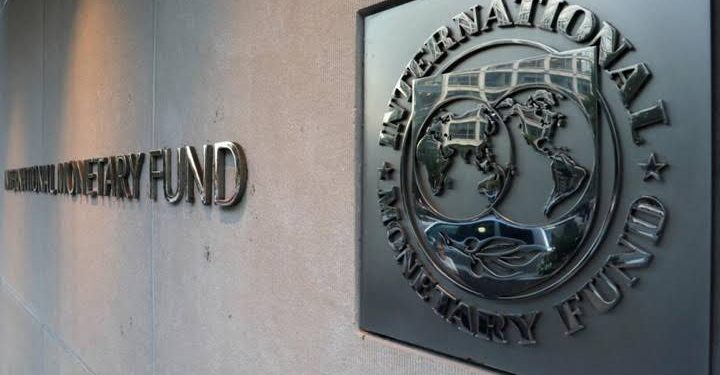Nigeria’s 2025 fiscal outlook is under mounting pressure, with the International Monetary Fund (IMF) warning that the country could be heading toward a deeper financial crisis unless urgent adjustments are made to its budgetary plans and spending priorities.
In its latest Article IV Consultation report, the IMF raised red flags over Nigeria’s ballooning fiscal deficit, now projected to hit 4.7 per cent of GDP significantly above government targets. This gap is being driven by declining oil prices, sluggish production, and execution hurdles in capital projects, all of which are threatening the foundation of the nation’s record N54.99 trillion budget.
The report criticises Nigeria’s 2025 fiscal strategy as overly optimistic, citing revenue projections based on outdated oil price assumptions and an overambitious outlook for capital expenditure. It stresses that unless the government formally revises its budget and fiscal targets, the country will remain vulnerable to widening deficits and economic instability. According to the IMF, savings from fuel subsidy removal estimated at about two per cent of GDP must be efficiently captured and channelled into the budget. But if those savings are not realized in the second half of 2025, and tax reforms fall short of generating meaningful gains, the IMF recommends cutting recurrent spending to protect capital investments critical to economic growth.
Despite ambitious capital spending plans, the IMF expressed doubts about Nigeria’s capacity to implement them. Historical patterns suggest that a large portion of the infrastructure budget may go unspent, delaying much-needed development and compounding fiscal pressure. The report also raised concerns about Nigeria’s growing public debt, now at 53 per cent of GDP, up from 49 per cent the previous year—driven largely by deficit financing and exchange rate depreciation.
The IMF called for the recalibration of Nigeria’s fiscal policies, urging a shift toward a neutral fiscal stance to maintain macroeconomic stability. It also underscored the importance of prioritising social safety nets, particularly amid rising poverty and food insecurity. Enhancing support for vulnerable households, the Fund said, is essential to cushioning the harsh effects of economic reforms.
To stabilise public finances, the IMF strongly recommended continued efforts to broaden the tax base and reduce Nigeria’s dependence on oil revenues. Proposed tax reforms including adjustments to the value-added tax and corporate income tax are welcomed, but the IMF noted they will take time to yield tangible results.
In response, the Nigerian government has acknowledged the concerns. The Minister of Finance and Coordinating Minister of the Economy, Wale Edun, assured that the government is taking proactive steps to address fiscal challenges. Edun reaffirmed the commitment to leveraging increased oil production, attracting private sector participation in infrastructure, and continuing with revenue mobilisation efforts. He also emphasised the importance of protecting reform gains and sustaining economic resilience despite global headwinds.
The government’s confidence, however, stands in contrast with warnings from both the IMF and the World Bank. The World Bank recently labelled Nigeria’s 2025 budget as “overly ambitious,” pointing to the risk of significant revenue shortfalls and the potential need to resort to central bank borrowing through the Ways and Means facility.
The 2025 budget signed into law by President Bola Tinubu includes N23.96 trillion for capital projects, N13.64 trillion for recurrent expenditure, N14.32 trillion for debt servicing, and a deficit of N13.08 trillion to be financed through borrowing. These figures rest on assumptions of \$75 per barrel oil, daily crude production of 2.06 million barrels, and an exchange rate of N1,400 to the dollar figures both global institutions believe may prove unrealistic.
While the government remains firm in defending its budget estimates, the IMF is urging caution. It emphasised the need for better fiscal forecasting, suggesting that more accurate revenue assumptions would enable clearer priorities and avoid unsustainable financing paths.
Despite its concerns, the IMF acknowledged some positive developments in Nigeria’s macroeconomic space. It praised ongoing reforms, reduced inflation—from 31 per cent in 2024 to 23.7 per cent in April 2025 and improved foreign exchange market stability. It also recognised tighter monetary policies from the Central Bank of Nigeria as key to supporting economic recovery.
Still, the IMF stressed that the road ahead remains difficult. Without credible reforms, realistic planning, and tighter fiscal control, Nigeria’s budget could collapse under the weight of high debt, weak revenues, and stalled capital projects. As both the IMF and World Bank warn, achieving inclusive growth will require more than optimism,it demands action.










